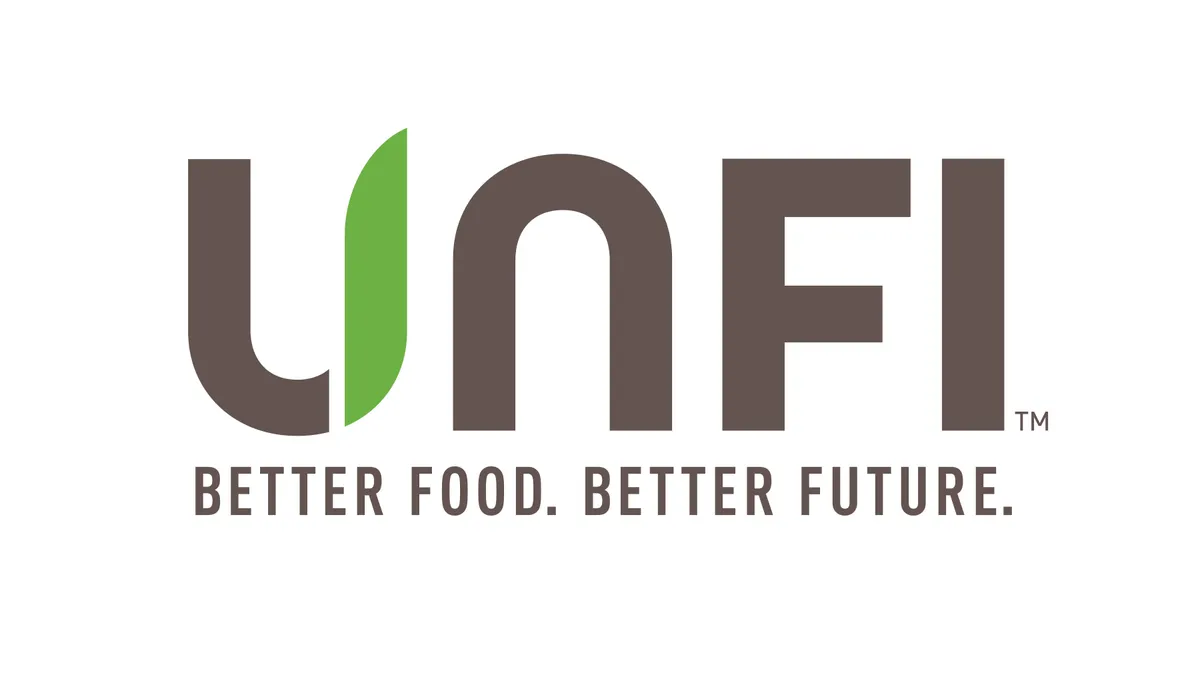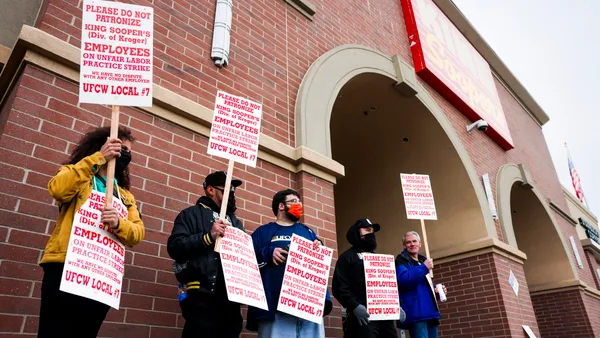Dive Brief:
- United Natural Foods, Inc. president and CEO Steve Spinner said Tuesday he was "disappointed" with the performance and integration of Supervalu distribution facilities during the second financial quarter, with several distribution centers experiencing higher-than-expected expenses. "Supervalu’s contribution to adjusted EBITDA was not where we want it or frankly expected it to be," he said during the company's earnings call. "We believe we have a good understanding of the underlying issues and have begun taking the appropriate measures to quickly address and correct them."
- UNFI cut its projected EBITDA for the year by more than 9%, noting it expects earnings to fall between $580 million and $610 million.
- Net sales for the company increased to $6.15 billion, including $3.47 billion from Supervalu, which UNFI acquired last year. Adjusted EBITDA for the quarter was $143 million versus $79 million during the same period last year, driven by Supervalu’s contribution, while earnings per share was 44 cents compared to the 23 cents Wall Street anticipated.
Dive Insight:
Things aren't getting any easier for UNFI, which followed up a major earnings miss last quarter with a cut to projected earnings for this year. Although the company beat analysts' sales estimates, the profit downgrade sent shares falling by more than 8% as of Wednesday evening.
The challenges of integrating Supervalu's distribution facilities with UNFI's systems and transitioning them to the company's new wholesale framework were outlined by UNFI officials back in January during its investor day. Those challenges have deepened, as evidenced by operational shifts in Pennsylvania and the Pacific Northwest, where the company is closing facilities and expanding capacity at others in order to optimize the flow of goods and increase efficiency.
In the Pacific Northwest, UNFI plans to go from five distribution facilities down to two — a tricky proposition that involves building a new 1.2 million-square-foot facility and expanding capacity at another.
Integrating new companies is always difficult, but complicating matters for UNFI are Supervalu's longstanding struggles with efficiency as well as its recent acquisitions of Unified Grocers and Associated Grocers of Florida.
"It's more challenging than we thought it would be," Spinner told analysts Tuesday. He continued: "However, I think we would have still made the same decision. The strategic value is right on. We're committed to the process. The synergies are good."
In a note to investors Wednesday, Oppenheimer senior analyst Rupesh Parikh characterized UNFI's results as "soft" and said the company could face further complications as its retail customers battle inflation, consolidation and intensifying competition.
"We continue to see risks associated with the integration against an increasingly dynamic grocery backdrop," he noted.
UNFI's stock price has dropped nearly 50% since it acquired Supevalu. Last month, UNFI sued Goldman Sachs, claiming the investment bank put its own interests ahead of its client's in securing a loan for the acquisition.
Still, officials stressed that Supervalu's challenges remain short-term headaches, and that the combined companies' build-out-the-store selling proposition and experienced leadership team will ultimately pay dividends.
Spinner said later this month UNFI will expand distribution of private label brands like Wild Harvest, Field Day and Everyday Essentials as it looks to sell more conventional products to natural retailers, and more natural products to conventional retailers. The company also hopes to sell its retail customers on additional services, including marketing, payroll and consulting.
"Our customers want and need to consolidate suppliers in order to reduce costs in their supply chain," said Spinner.













